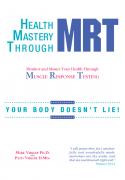A customer of mine asked me to develop a seminar for his executive team and board of directors on the topic “Why do good companies fail”. A fascinating question, and it begs to be answered; after all, how could great companies like Nortel, Kodak, and others fail, yet they have. They were the leaders in their industry, yet they are now bankrupt.
This customer of mine is a good company and they have decided to face the fact that if other good companies can fail, so could they. This is the first step in prevention: Stop denying that it couldn happen, and start determining how to prevent it.
Types of Failure
Although bankruptcy is an ultimate failure, the reasons that a company fails in the profit objective are likely caused by failure in other areas. I have learned from my company seven goals of corporate responsibility. Failure can occur in all these areas. Let’s examine these goals and the types of failure that can occur in each.
1. Profit
A company must create sufficient profit to finance company growth, create value for shareholders and provide the resources necessary to achieve corporate objectives. Unfortunately companies that fail often forget that “Profit is not the game; it is only the scoreboard that management is doing their job right.”[i] When a company bankrupts, everyone loses: communities, employees, governments. Nothing bothers me more than to travel through Southern Ontario and see once-thriving towns now becoming destitute due to loss of revenue caused by company closure. The overall impact of company bankruptcy on society is poverty.
2. Customer Loyalty
A company must earn customer respect and loyalty by consistently providing products, services and solutions of the highest quality and value. Evidence that a company is losing customer loyalty include customers buy less, or stop buying; stop telling others that you are a good company to deal with and start telling others not to buy your products and services. In some cases customers even start to write blogs complaining about a company, and some have developed consumer websites or other social media vehicles to provide a voice for their dissatisfaction.
3. Market Leadership
A company must lead in the marketplace by developing, producing and delivering useful, innovative products, services and solutions that drive customers’ success. Evidence that a company is no longer demonstrating leadership are:
- No innovation, no new products.
- Failure to be market driven.
- Not actively determining customer wants/needs and developing solutions to meet their wants/needs.
- Not creating new wants in customers.
- Not identifying problems that nobody is solving.
- Believing you know better than customers and that because you created a winning product before, you will again (common inside-out view).
- Believing that your process is the reason customers buy your product or service.
The impact of these failures is loss of new sales, loss of market reputation, and loss of stock value.
4. Growth
A company must recognize and seize opportunities for marketplace growth that builds upon the strength of their competencies; they must always pursue the next great innovation. Evidence that failure is occurring in this goal is a company becomes complacent and does not consider new ways to create wealth or exploit new technologies or methods. They demonstrate a lack of boldness and courage to risk.
5. Commitment to employees
A company must demonstrate commitment to employees by promoting and rewarding based on performance and by creating a work environment that is stimulating, reflects the values of the company and the diversity of the global community. When a company begins to fail in this area the very heart of the company is compromised. Evidence of failure in this goal is:
- Employees won’t go the extra mile.
- Employees focus on looking for another job.
- Loss of invention and creativity.
- Employees will simply treat their work as a job - a 9 to 5 routine without any desire to accomplish any more than is necessary to remain employed.
Without employee commitment there can be no improvement in any area of business activity, and it does not take many uncommitted employees to prevent a business from prospering and thereby ceding a big advantage to its competitors.
6. Leadership capability
A company must develop leaders at all levels that consistently lead them to win, grow and thrive as a company, exemplifying the company’s values in their behavior, actions and business practices day-to-day. Evidence of failure in this goal are: employees have no goals, and no integrated plan to meet goals; the company becomes indecisive; management are self-serving and not serving the company, employees or shareholders. The impacts of failure in leadership are:
- Loss of employee respect, loss of market respect, and the value of stock may drop.
- Constant learning stops being a priority, in favor of a louder, pushier approach that's all about claiming success and spinning away inconvenient facts.
- Employees no longer feel comfortable speaking the truth. They may appear to be in step with their bosses' decrees, but cynicism and careerism increase.
- Passion for the work at hand dwindles.
When leadership fails, the company will fail.
7. Global citizenship
A company must fulfill its responsibility to society by being an economic, intellectual and social asset to each country and community where it does business. Evidence that a company is failing in this area are:
- Doesn’t provide good working conditions, prioritizing the health and safety of workers.
- Doesn’t provide sustainable living wages.
- Doesn’t execute honesty and integrity of transactions.
- Doesn’t protect environment from impact of operations.
- Contamination or degradation of the environment occurs.
- Doesn’t demonstrate fair and just use of environmental resources, such as water, to safeguard the rights of other users in the local and surrounding communities.
- Doesn’t ensure just relations with the host community.
- Doesn’t demonstrate justice in use of the physical and social infrastructure of the community.
- Doesn’t pay their fair share of the tax base, by which a community funds its own development.
The impact of not being a good global citizen is loss of investments in education, and therefore undermining the development of the next generations of inventors and employees.
What are the causes of these failures?
In Dr. Jagdish N. Sheth’s book The Self-Destructive Habits of Good Companies, he takes a hard look at the causes for company failure. He identifies seven self-destructive behaviors, or belief systems that companies that have failed have exhibited. These behaviors/beliefs systems are:
1. Denial: Believe they are not doing anything wrong and they will be successful forever.
2. Arrogance: Believe they are the best, that they are right about everything. They stop listening to the sales guys, the customers, and anyone else because they know “better.”
3. Complacency: Believe that what we have always done is good enough and we don’t need to change.
4. Competency Dependence: Believe that their current competency or product is all they will ever need, and they don’t need to invest time or money to invent anything new.
5. Competitive Myopia: Believe that no new competitor will ever be able to beat them.
6. Volume Obsession: Believe that bigger is better and that growth in revenue is more important than good margins.
7. The Territorial Impulse: Believe that “I must protect my own turf, my organization, my business unit, my department and I really don’t care about the rest of the company.” The company culture becomes one of protecting one’s turf rather than improving the company’s results.
What is the root cause?
I found Jag’s book to be an exceptional document to help detect that failure has happened or is in process, but I did not feel I had uncovered the true root cause for these behaviors/belief systems.
When I am faced with these kinds of questions I ask the Lord for His advice. I have recorded below what I felt He said to me when I asked him about “why do good companies fail?”
Son,
Men who are slothful, greedy, selfish are not good stewards; in fact these behaviors are the opposite of stewardship. Stewardship requires a person to invest their heart, not just their time. A successful entrepreneur puts their whole heart into their endeavor. It consumes them, they constantly think of ways to improve their products, methods, and market penetration. They invest everything to make the venture succeed.
As a company succeeds, it takes less heart and commitment to continue to run. Leaders do not commit their hearts to the firm and this where the problem begins. The lack of passionate commitment leads to indifference or a poorly-thought-though approach to the work of management. Indifference becomes a cancer that eats through a company and affects most people. This leads to the downfall of the firm.
Leadership must serve with their whole hearts. They cannot be guns for hire. At HP, look at Bill Hewlett and Dave Packard as examples of this kind of stewardship. These leaders were committed to the firm. They poured their hearts into the firm and all drew strength from their examples.
Leadership is the key in all initiatives. Leaders serve. They serve by investing their whole heart, not just their time.
Son, this can be addressed by:
- Deciding, “Am I prepared give my whole heart or just my time?” Every board member, every leader needs to make this decision.
- They need to ask themselves, “What would I do differently in this firm if this was the most important thing in my life?”
- Priority is the next key to success. Leadership must decide to implement true solutions, not band-aid solutions to these issues. Real solutions take heart to develop; they require people to go the extra mile.
- Leaders must be honest with themselves and ask, “Am I prepared to do this?? If not, step down and let someone else do it who does have the heart. It would be the best thing you can do for yourself and your company. For yourself, do something you can put your whole heart into.
Love
Dad
Characteristic of a steward in business
This was a challenging insight to me, and as always the Lord helps me see a solution to help my customers. The word stewardship is not a word that is used that much these days. A person with a “steward heart” is one that is committed to the shareholders, and demonstrates these characteristics:
1. Humble: Humility is the opposite of arrogance. Humble people do not assume that they are always right, are open to the ideas of others, and they are teachable.
2. Faithful: True stewards do things when nobody is watching. They are good stewards of their shareholders’ money and trust all the time.
3. Diligent: Diligent people work hard at the work they are responsible for. They are not slothful, greedy, lazy, or selfish; these are the opposite of stewardship.
Self Assessment
It is hard to lead a company or a government in these difficult times. Our shareholders, our employees, and we need to be fully committed. Perhaps in the above discussion you felt a few moments of discomfort and are beginning to wonder, “What should I do?” There is a solution and the issues can be resolved if action is taken to change. Here are few steps to put you on a road to recovery:
Personal
- Sincerely look at yourself and decide if you are giving your whole heart to the firm or only your time.
- If you are just giving your time, admit that you have lost heart for your firm, your job.
- Assess how far the problem has gone in your own life. Is it superficial or deep-rooted?
- Decide to change; if you cannot give your whole heart, it is time to let someone else lead. If you decide to give your whole heart, set clear measurable outcomes that describe what your behavior will look like when you are giving your whole heart.
- Ask someone to hold you accountable to achieve these outcomes.
Corporate
- Lead your management team in a time of self-examination and critical review of your firm. Look for evidences of the seven self-destructive habits.
- If you detect these behaviors, admit that they are manifesting in your firm.
- Assess how far the problem has gone in your company. Is it superficial or deep-rooted?
- Decide to change and establish clear measurable outcomes that describe what your company will look like when the behavior is gone and what tasks each executive will do in their sphere of responsibility to eradicate the behavior.
- Assign an auditor to hold your executive team accountable to accomplish these outcomes.
Jesus said that if you want to be great in the kingdom of God you need to become the servant of all. These are tough words in a world where the idea of a servant means a lowly worthless position. Yet, it truly is the key to becoming great. A good servant is a good steward; a good steward will always do what is best for the shareholders and employees. Today, as never before, we need all of us who are called to lead businesses to become good stewards, to prevent more business failures.
Yours, Bill
Recommended reading
- The Self-Destructive Habits of Good Companies: ...And How to Break Them [Hardcover]Author: Jagdish N. Sheth ISBN-13: 978-0131791138
Author Biography
 William Dupley has over 34 years of experience in information system consulting and is a specialist in IT Strategic Planning. He is the author of The Secret Place. It is a book of personal testimony about experiences Bill has had with our Heavenly Father in a Secret Place that The Father has created for him. It has been written to help others learn how to hear the voice of God, for personal and business issues and how to develop a deep intimate relationship with Him. Together with his wife Susan he travels globally conducting seminars on how to live in the kingdom of God. They believe that the supernatural should be the natural for all believers and that every believer can impact their world for the Kingdom of God as they hear God's voice and follow His leading.
William Dupley has over 34 years of experience in information system consulting and is a specialist in IT Strategic Planning. He is the author of The Secret Place. It is a book of personal testimony about experiences Bill has had with our Heavenly Father in a Secret Place that The Father has created for him. It has been written to help others learn how to hear the voice of God, for personal and business issues and how to develop a deep intimate relationship with Him. Together with his wife Susan he travels globally conducting seminars on how to live in the kingdom of God. They believe that the supernatural should be the natural for all believers and that every believer can impact their world for the Kingdom of God as they hear God's voice and follow His leading.












Comments
Bill , We all need checks and
by Anonymous
Bill , We all need checks and balances to make sure what we are doing is right . Thank you for writing and reminding us to see examine our past journey and were we are at . Very helpful .
the "steward heart"...
by Anonymous
I was reminded by your thoughts on this that my own assessment is always ongoing. Most recently it seems the order is; Faithful, Diligent, then Humble, and on the latter part only when He tells me I'm right do I lose some of my humbleness and become exuberent. The steward heart always forgives ... and does that instantly!
Add new comment